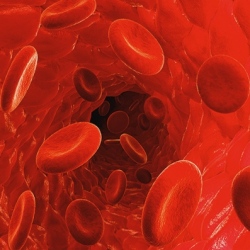
An association between resting heart rate and diabetes suggests that heart rate measures could identify individuals with a higher risk of diabete. In a four-year study of 73,357 Chinese adults, researchers observed that faster heart rates were positively associated with an increased risk of developing diabetes.
Researchers also found that faster heart rates were associated with impaired fasting glucose levels and a conversion from impaired fasting glucose levels to diabetes among the same population.
"In this study, we measured resting heart rate among about 100,000 Chinese adults and followed them for four years," said Xiang Gao, associate professor of nutritional sciences, Penn State and a study senior author. "We found participants with faster heart rates, suggesting lower automatic function, had increased risk of diabetes, pre-diabetes, and conversion from pre-diabetes to diabetes.
Each additional 10 beats per minute was associated with 23 percent increased risk of diabetes, similar to the effects of a 3 kilogram per meter square increase in body mass index.
"We further combined our results with those of seven previously published studies including 97,653 men and women in total, on the same topic, and we found a similar association, individuals with fast heart rate had 59 percent increased risk of diabetes relative to those with slow heart rate."
